- Home
- Lizzy Ford
East Page 18
East Read online
Page 18
“What is it, Moonbeam?” Suvdin asked.
For a moment, I debated what to say. I had no reason to distrust Carter’s claim. He wanted me to survive, but the idea of facing something as horrific as the Black Death, something that wiped out over a third of the population of the world at this point in history, was kind of creepy. It didn’t seem right that Ghoajin had to do it alone.
“I think I know a skill I can use to help out,” I said slowly. “I can’t get the Great Plague. I can help Ghoajin.”
Suvdin hesitated. “Yesen Yeke is not likely to approve, Moonbeam. You are a gift from the Eternal Blue Sky,” she said. “Our clan chief will not wish to put you in danger.”
“But I won’t be in danger.”
“We can ask his permission. Besides, there is nothing to be done for those who catch it. We remove them from camp to protect everyone else, and all but one out of a hundred survives.”
It sounded horrible to segregate the ill and leave them to die, yet I understood the rudimentary medicine of this era couldn’t handle such a sickness. It was the men in the tent dying – or then entire camp if it spread. I was kind of grateful she doubted I’d be allowed. It was the skill I looked forward to the least, even less than skinning an animal, because of the horror stories that remained in history classes and literature about the plague.
“You can also swim,” Suvdin pointed out. “Few of us can or will.”
“How does that help you?”
“We will figure it out.”
I sighed and prepared myself for another day of grueling manual labor that left those around me laughing and me less convinced I could ever fit in here.
The day went as I expected. Tired, sore and hungry, I joined the family in Ghoajin’s tent for a feast after nightfall. I was too exhausted to ask her about the patients she treated in the tent, too tired to do much more than eat and offer Flowers smiles whenever she glanced uncertainly my way.
Suvdin showed me back to my tent and I started to get ready for bed – then paused.
Batu wasn’t back yet. I had thought he meant to return today at some point. There was no sign he’d been back to the ger, either. I was looking forward to a night alone – but not if it meant he was in trouble or anything.
The man can handle anything. I reminded myself he was the champion of his people. If he got hung up somewhere, he was likely helping other clans take out their enemies or something, not lying in a ditch somewhere hurt.
Reassured, I stripped off my boots and clothing down to a tunic and climbed into bed, stretching luxuriously. Sleeping with Flowers was miserable, and, while I enjoyed being wrapped in Batu’s arms every night, it was awesome to have a night to myself, too.
I slept the best I had since falling ill from infection. I didn’t even hear Suvdin enter the ger or sense her until she shook me awake the next morning.
“Oh, damn.” I pushed myself up groggily. “Am I late?”
Worry tightened the lines beneath her eyes and made her forehead crease. “No, Moonbeam.”
“What’s wrong?” Not quite able to think straight so early, I found myself craving coffee as I stood and began to dress. “Is Flowers well?”
“She is. But Batu …”
I froze and straightened, alarm snapping me out of the post-wake up stupor. “What happened?” I demanded quietly. “Where is he?”
“He is ill, Moonbeam.”
“Injured from battle?”
“No.” She wrung her hands. “He is fevered. Ghoajin fears it’s the Great Plague.”
I stared at her. Last night, I had been debating whether or not I wanted to take a chance and explore a relationship with Batu, and today, the option might have been off the table. My chest was tightening, and a small voice in my head was trying to convince me I hadn’t woken up, that this was a dream.
It wasn’t.
“In that case, I will be helping him,” I said at last.
“Yesen –”
“I don’t care, Suvdin!” I snapped a little too harshly. “Batu has saved my life multiple times. If I can help him, I will. Where is he?”
“The plague tent.”
“So even if he didn’t have the Great Plague, he probably will now.” I began to pace, my thoughts racing. I glanced at my bandaged hand. “Um, can you give me a moment to dress?”
“Of course.” She left the tent.
With some queasiness, I knelt beside the weapons Batu left and drew a knife. I held my breath and poked the pad of my good thumb. Muttering a curse, I checked the blood.
No black dots at all this time. I squeezed more out, hopeful I’d find a quick cure to Batu’s illness.
My blood was normal. Whatever had been in my system while I was unconscious for seventy years was completely gone. Rather than be pleased by the absence of evidence of whatever weirdness Carter did to me, I was … scared.
I sat in silence for a long moment, fighting the sense of detachment that crept over me during moments of duress. Batu wasn’t here to pull me out of it, and I recited his chant a few times to help me reroute my panic into focusing on my surroundings.
When the spell passed, I dressed quickly and fumbled to pull on my boots. I wasn’t really certain what I felt about Batu being ill, except that he seemed too strong for this to be possible. The images of him fighting were in my head, the various times where he’d saved my life flashing so vividly, I began to think it was a joke a simple bug could take him down.
But no one was immune to aging or illness, especially not in an age when there was no modern medicine. We had gone to the trading post, and Batu was ill.
I wasn’t going to let him be sentenced to the plague tent to be made comfortable with the assumption he was already dead. We had been through too much together, and he was my connection to this world.
I can’t do another Taylor. The idea of losing someone else left me rattled and my breathing uneven.
“I’m ready,” I said as I left the tent.
“You are certain you wish to go to the plague tent?” Suvdin searched my features. “Yesen Yeke will be displeased.”
“He can come out and drag me back,” I said with wry humor. “And yes. I am certain.”
“Very well. I have some supplies you can take. Ghoajin will be out later.” Suvdin appeared concerned. “Moonbeam, you will not fall ill?”
“I will not.”
“If you are truly a goddess, then you must not let Batu go to the sky yet.”
I offered a small smile, sensing her restrained emotion. There was a part of her that still loved Batu, and I had a feeling I was her only hope to help him. “I’ll do what I can,” I replied. I really wish I was a goddess.
She led me to the edge of the camp, where two horses waited. One was packed with food, herbs, milk, blankets and water while the other was saddled for me to ride. I paused, heart pounding as I gazed at the distance between me and the plague tent.
There was a chance, however slim, that I didn’t survive this, either. What if the Great Plague and whatever Carter immunized me against was something different?
My entire life on the steppes with the Mongols had consisted of one near-death experience after the other. How civilization as a whole moved past eras like this and survived, I’d never understand. Reading about history definitely didn’t convey the sense of danger people before the twentieth century faced every day.
“Take care of Flowers,” I murmured and approached the horse waiting for me. “She’s a good girl.” I mounted. For once, my aching body wasn’t at the top of my thoughts.
“She is already helping me with my younger ones,” Suvdin said. “Ghoajin returns at night. If you do, will you come to see me?”
Carrying plague germs? I wasn’t certain how half the camp didn’t have the Black Death, if someone was going between the two points. “Sure,” I said, not really concerned if I meant it or not. I had no intention of leaving Batu’s side.
Too distracted by what lay before me, I left Suvdin without a
farewell and headed toward the tent.
Its scent – of death and decay – reached me before I was close enough to dismount. I covered my lower face with one of the rags in the supplies and stopped outside the tent when I was close enough.
I had no medical training or sense. At all. I may have taken a first aid class at some point, but I didn’t think applying a tourniquet or CPR was going to fix the plague. There was general medical knowledge I possessed that was possibly rare here: the need to wash my hands, how a virus or bacterial infection was transmitted, how to help regulate a fever …
I hoped … prayed … it was enough to make a difference. Leaving the horses, I opened the tent and almost threw up. The scent of refuse, vomit and sickness was strong. Ghoajin had tried to clean up, but she was too frail for the amount of maintenance an operation like this required.
There were three men within, each on a pallet with a bucket or two beside him where he could throw up or use the restroom. From the looks of it, one of them had given up or the bucket was full, because the area beside his bed was soaked with what looked like blood and food he’d vomited.
A fire burned in the center of the tent, and there were four tables and a bed present. I swallowed hard as I looked at two of the men, who appeared to be in advanced stages of illness.
“What do you do, Goddess?” Batu asked from the third pallet.
In twenty-four hours, he had gone from the strongest man I knew to someone who looked quite sickly. His face was flushed, his gaze unfocused and fevered, and he struggled to sit.
“Lie still,” I told him and hurried to his side. I dropped to my knees.
Where he had once been the epitome of intimidating, I was able to keep him on his back with one hand pressed to his chest.
The change in him, the sight of his weakness, threw my thoughts into a tailspin.
Not Batu. I couldn’t be here only to lose someone again. While true I barely knew him, he had voluntarily and without a second thought risked his life for mine on more than one occasion. Whatever I thought of his ear-collecting warrior duties, I also knew his lack of hesitation to place himself between me and danger spoke volumes about the kind of person he was.
He cared for me, and I cared for him despite the odds.
I blinked out of my thoughts. “Are you comfortable?”
“No.” He chuckled. “Hot. Cold. Hot.”
I felt his forehead. It was blazing. “I don’t know anything about this illness.” Worried, I rose and crossed to the man nearest him. He was covered in boils that rendered his appearance lumpy and bloated. Several were oozing blood.
“You should not be here, Moonbeam,” Batu told me.
“I can’t catch this illness,” I replied. Hopefully. “Ghoajin can’t handle this herself.” I straightened, queasy and disturbed but aware there were three people who needed help. “And I’m not going to let you be alone and suffering with this disease.”
“They can find you another guardian.”
“You cared for me when I was ill. I will do the same for you.”
“It is not your duty.”
“Don’t be stupid, Batu!” I snapped, irritated by his casual dismissal. “I am going to help you. Somehow.”
“Very well, ugly one.” He smiled tightly. His eyes were closed, his skin clammy and soaked through with sweat.
I left the tent and breathed in the putrid air outside of it. The place positively reeked. I was scared for him and struggling to figure out what should be done to make things better.
I really wasn’t sure. Angry with myself, I began to unload the horse while my thoughts raced. I had no medical training, but common sense said their environment was an issue. I couldn’t exactly create a sterile environment like that of a hospital, but I could take care of the disgusting conditions. It was a place to start and something Ghoajin wouldn’t be able to do on her own.
Fire. “Ah, yeah,” I murmured. Their clothing, the old rags piled under a table, anything that had been thrown up on … I could burn that shit.
My makeshift mask slid off, and I gagged. It was even worse without it. I tugged it into place once more and eyed the tent.
In theory, I should be able to roll up its sides. There were leather straps dangling beneath the head of the mushroom, and the clean air would definitely make the place more bearable.
I circled the small ger and tested one felt wall. They were designed for quick erection and disassembly and to be carried in small wagons pulled by horses. The walls were in strips about ten feet wide and size feet tall. I had made an attempt to help someone put theirs up yesterday as part of my chores. Although I failed miserably to do it as instructed, I at least know how they were supposed to go up and come down.
It took some time – about two hours – but I managed to roll the first wall. Sweating when I was done, I stood back to assess my crude work with satisfaction. Batu had managed to sit and was watching, his muscular frame sagging and eyes glazed.
His weakness sent a streak of cold fear and despair through me.
Ignoring it, I went to work raising the other three portions of the walls. My sloppy work would never pass inspection of any eagle-eyed woman of the clan, but it served the purpose I needed it to.
Already the wind of the steppes was sweeping the smells away.
My second item of business: building a fire behind the tent to burn the nastiness within.
Batu had made an attempt to teach me to build a fire during our travels while another of the women had showed me again two days ago. I created a pit and filled it with some of the dried dung from the supplies and a few rags. There was enough flammable material that it was easy to take a flame from the existing fire and then just toss everything else into it.
Stretching out a blanket, I piled the dirty and spoiled rags into it.
Probably the material in the worst shape: the clothes of the men. Ghoajin wasn’t strong enough to strip them down, and their tunics were soaked with sweat, blood and puss from exploding boils.
Peering at the worst of the three, I couldn’t help thinking this was the most disgusting thing I’d ever seen. The man appeared to be barely alive, and my heart broke for him. I knelt beside him and gently began to pry off his soiled clothing.
“Batu, take off your clothes!” I called to him.
“Not my … belt,” he replied.
“Um, okay. You can keep that.” Like a belt matters right now. But maybe it was like his Moldavite; it was for morale.
He grunted and did his best to maneuver out of his clothing. I watched for a moment, stricken again by how weak he had become in so short a time. He obeyed and stripped down until he was naked then rested back.
I didn’t let my gaze stray where it wanted to. It seemed like something that’d send me to hell if I checked him out while he was on the verge of dying. Instead, I covered him with a blanket from the waist down and returned to wrestling gently with the worst off – a man I was nicknaming Lumpy, since I had no other way to identify him – and pulled off his clothing.
Lumpy and Grumpy – the second man who physically pushed back when I stripped off his clothing – were soon both covered with blankets in a similar fashion, giving me unfettered insight into how horrific this disease was.
Holding my mouth, I left and ran beyond the fire, not wanting to upset them when I vomited everywhere. I threw up last night’s dinner and then sat back on my heels.
What the hell am I doing? The chances of any of them living were pretty close to zero, and I had absolutely no clue how to help. The moment I thought of Batu, I knew I had to try, though, no matter what the odds. He deserved it. He deserved for me to try to save him the way I hadn’t Taylor.
Tossing my head back, I realized it was past noon, and Ghoajin hadn’t yet ridden out. I could think of one duty I was dreading that I’d like to give the woman: cleaning Lumpy and Grumpy’s bodies.
I wasn’t entirely certain I was ready to handle this latest trial yet and remained where I was for severa
l moments, lost in thought and dreading returning to the tent to see the suffering of others.
After a quick breather, I ate a little of the food Suvdin had sent with me and went back to reassess the three ill men. I had never felt quite so helpless before, as if I should know how to help them with my twenty first century knowledge – but didn’t have a clue.
I could really use a history chip. Something to tell me how those who survived the plague did so.
With the fire burning off the filth, I sat by Batu and gazed at his strong features and the muscles of his exposed chest. It just wasn’t right that someone like him could end up vulnerable and weak under any circumstances.
He was dozing, and I checked his body for signs of the boils. Some were forming on the skin of his upper arms, beneath the skin, dark splotches that looked like bruises but were round and raised.
“You can fight this, Batu,” I whispered, troubled.
They all needed food and water. Or maybe, milk and water would go down more easily. Retreating to the horse, I returned with several bladders, half filled with water and the other half with milk.
“Goddess.” Batu was awake.
“Drink some of this, Batu.”
He accepted one bladder and propped himself on one elbow, drinking obediently. I took it when he was done. His dark gaze remained on me, and I studied his features.
This couldn’t be how it ended. This couldn’t be how we ended.
“I am pleased you are here,” he said at last and cupped my cheek with one hand.
I smiled. “When you’re better, we’ll plan where we’re going next,” I said with forced cheerfulness. I took his hand and held it in both of mine.
He said nothing. I pushed him onto his back.
“Shall I sing for you?” he murmured.
“Yes. A water song.”
He began, and I listened, as intrigued by the man as I was his strange songs. With my stomach churning, I helped the other two men drink and began cleaning up their sores and boils. It took effort not to get sick, and I left twice to throw up where they couldn’t see me.

_preview.jpg) Gabriel's Hope (#1, Rhyn Eternal)
Gabriel's Hope (#1, Rhyn Eternal)_preview.jpg) Katie's Hellion (Rhyn Trilogy, Book One)
Katie's Hellion (Rhyn Trilogy, Book One) Rebel Heart
Rebel Heart_preview.jpg) Deidre's Death (#2, Rhyn Eternal)
Deidre's Death (#2, Rhyn Eternal)_preview.jpg) The Door (Part One)
The Door (Part One)_preview.jpg) Darkyn's Mate (#3, Rhyn Eternal)
Darkyn's Mate (#3, Rhyn Eternal)_preview.jpg) Supervillainess (Part One)
Supervillainess (Part One)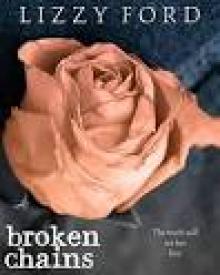 Broken Chains (Broken Beauty Novellas Book 3)
Broken Chains (Broken Beauty Novellas Book 3) Santa's Ninja Elves
Santa's Ninja Elves_preview.jpg) Damian's Immortal (War of Gods, Book 3)
Damian's Immortal (War of Gods, Book 3)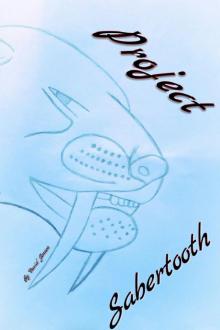 Project Sabertooth
Project Sabertooth White Tree Sound
White Tree Sound Mind Cafe
Mind Cafe Broken Beauty: Part One, Broken Beauty Novellas
Broken Beauty: Part One, Broken Beauty Novellas Zoey Rogue
Zoey Rogue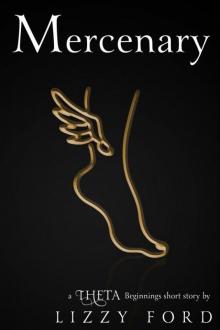 Mercenary
Mercenary See No
See No Zoey Avenger (Incubatti Series Book 2)
Zoey Avenger (Incubatti Series Book 2) Black Moon Draw
Black Moon Draw Lost Vegas Series
Lost Vegas Series Spring Rain
Spring Rain Trial by Moon
Trial by Moon Broken Chains
Broken Chains Silent Queen
Silent Queen Semper Mine
Semper Mine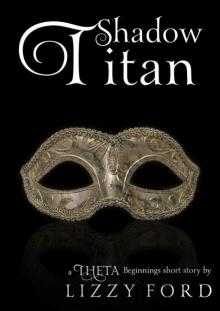 Shadow Titan
Shadow Titan Damian's Assassin
Damian's Assassin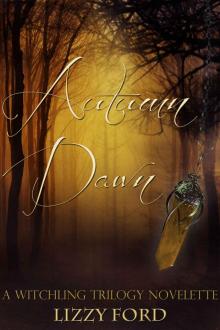 Autumn Dawn (#2.5, Witchling Saga)
Autumn Dawn (#2.5, Witchling Saga)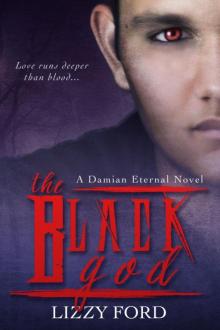 The Black God (#2, Damian Eternal Series)
The Black God (#2, Damian Eternal Series) Twisted Karma
Twisted Karma The Underworld (Rhyn Eternal)
The Underworld (Rhyn Eternal) Damian's Oracle
Damian's Oracle See No: Hidden Evil #2
See No: Hidden Evil #2 The Rhyn Trilogy
The Rhyn Trilogy Theta
Theta Water Spell (Guardians of the Realm Book 1)
Water Spell (Guardians of the Realm Book 1) Soldier Mine
Soldier Mine Trial by Heart (Trial Series Book 4)
Trial by Heart (Trial Series Book 4) A Demon's Desire
A Demon's Desire The Door (Part Two)
The Door (Part Two) East
East The Grey God (War of Gods 4)
The Grey God (War of Gods 4) Dark Summer
Dark Summer Trial by Thrall (Trial #2)
Trial by Thrall (Trial #2) Charred Hope (#3, Heart of Fire)
Charred Hope (#3, Heart of Fire) Damian's Immortal (War of Gods 3)
Damian's Immortal (War of Gods 3) Charred Heart (#1, Heart of Fire)
Charred Heart (#1, Heart of Fire)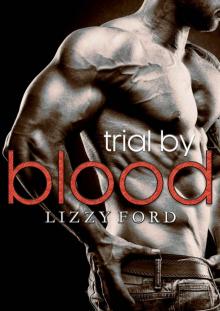 03 - Trial by Blood
03 - Trial by Blood People's Champion
People's Champion Highlander Enchanted
Highlander Enchanted Katie's Hope (Rhyn Trilogy, Book Two)
Katie's Hope (Rhyn Trilogy, Book Two) Alessandra (#1, Omega Beginnings Miniseries)
Alessandra (#1, Omega Beginnings Miniseries) Rhyn's Redemption
Rhyn's Redemption Kiera's Moon
Kiera's Moon Autumn Storm
Autumn Storm